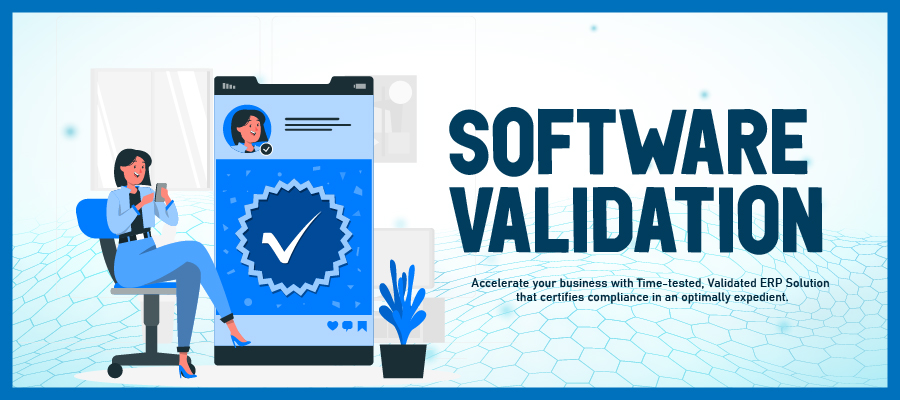
- Roadmap
- 28-Jul-2022 02:44:35
Roadmap's Software a Pre-packaged Verification and Validation Suite
Roadmap's Software Development and Operations teams (shortly DevOps) involve providing integrated and customized ERP solutions to various industry verticals across India and overseas. This blog gives an overview of how Roadmap meets the requirement of standardized 3Qs (IQ-OQ-PQ) of the Software Validation Process for their ERP system.
What is 3Q's Software Validation Process and Why is it Required?
Any newly-built software before reaching its final deployment in the market has to pass through a complete Software Development Life Cycle (SDLC). This cycle begins by documenting a Request for Proposal (RFP) or Software Requirement Specification (SRS) and ends at the successful completion of 3Qs of the software validation process for the software to be used by clients. The objective of this validation is to submit documented evidence that the product is rightly installed; operates as per the requirements and specifications; and performs safely without any hassles.
Roadmap IT Solutions strenuously adhere to the 3Qs of the software validation process as it is critical for FDA-regulated industries especially Medical Devices Manufacturing Industry, Pharmaceutical Industry, and Food & Beverage Industry to ensure that the product is fit for purpose.
The ERP system software has been developed by Roadmap's In-house Dev team as per the Software Requirement Specification (SRS) and Functional Specification. During the ERP software development phase, the verification of the software has been done in a simulated environment at various settings. The software testers in the Dev team verify the implementation at various testing environments from the specified to the high end with different values. After completing the development and testing of the ERP system software, the Dev team handed over the software and other deliverables such as binaries and test scripts to the Ops team. The Execution Summary reports for IQ-OQ-PQ testing will also be provided to the Ops team.
The 3Qs of the software validation process consist of 3 phases: Installation Qualification (IQ), Operation Qualification (OQ), and Performance Qualification (PQ). The IQ-OQ-PQ testing is being followed as part of Validation; and it will be carried out by Roadmap's Ops team, who are ultimately responsible for deploying the software to production.
Installation Qualification: Installation Qualification test is the first phase of validation done by Roadmap's Ops team. This IQ testing is done to verify whether the ERP system can be successfully installed according to the specified environment and specified configuration. Also, to verify how these installation steps were recorded in the 'Installation Guide' document provided by the Dev team. It is imperative to note that the installation steps should match the real-time environment.
Then, automated smoke testing and build verification tests will be carried out to check the success of the software installation. These will ensure that the build is successfully installed, the end-to-end connectivity of the system is perfect, and all the components of the system are coordinating with each other as expected. Rollback scripts are also provided as a precautionary option to roll back and restore the system successfully in case the software installation is failed.
Operational Qualification (OQ): The OQ testing is a second phase of the software validation process performed by Roadmap's Ops team to verify key functionalities of the ERP system. Before carrying out the OQ Validation process, the Dev team must submit the OQ testing documentation and functional specification documentation. This includes no. of tests, methodology, tools, impact on the service, test execution sequence, method of reporting issues and the SLAs for fixing them, Defect Triage approach, etc. Successful completion of OQ testing demonstrates that the ERP system will function according to its operational specifications in the selected environment.
Performance Qualification: After ensuring successful IQ and OQ completion, Performance Qualification (PQ) testing is the next validation process done by the Ops team. This PQ testing ensures that Roadmap's ERP system meets the User Requirement Specifications (URS) with the specified performance under the expected load consistently without causing any bottleneck in the production environment.
The primary objective of PQ testing is to ensure that the ERP system installed on the expected system can handle the live load and meet the expected response time. Also to ensure that the ERP system does not crash under peak loads or stress while handling concurrent users.
PQ testing is mainly to ensure that the specified performance criteria for software are achieved over a while on a reliable basis with varying load conditions, as the pattern of its life. These tests have to be run every day to monitor the software system behavior and hence PQ testing will take a while to complete till it is ensured that the ERP system is proven for its performance.




